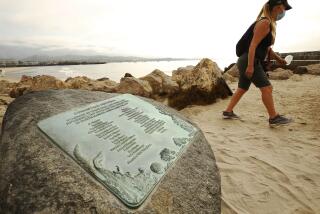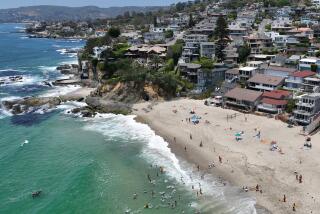State Coastal Commission
The article by Robert Stewart and Ronald Taylor on the state Coastal Commission (Part I, Sept. 7) substantiates a significant point which is not specifically stated in the comprehensive report.
Since the inception of the 1972 and 1976 state Coastal Acts, the most vocal critics have complained that the commission unduly obstructs coastal development.
The Times story, however, makes it clear that the commission’s major shortcoming in recent years has been its failure to prevent detrimental coastal development.
Persistent critics also have assailed the commission’s staff as an obstruction to development. The Times report indicates that the staff has been competent and consistent in its adherence to the Coastal Act, but that its efforts are frequently undermined by the commission.
The appointing authorities--the Legislature and the governor--have created the condition lamented in The Times report. The governor appoints four of its members. He also wants to eliminate the commission. He isn’t likely to appoint members who support the Coastal Act.
The report said much about the Platform Gail episode, but failed to point out that the Chevron offshore oil project was defeated Sept. 9, 1986, by friends of the oil company. They said the environmental conditions--to which Chevron had agreed--were too stringent and they therefore couldn’t support the project. This bizarre condition was subsequently rectified and the oil platform is now in place. But the process was another embarrassment for the commission, some of whose members were guided more by whim and pressure than by the Coastal Act and the commission staff.
ROBERT SOLLEN
Santa Barbara
More to Read
Sign up for Essential California
The most important California stories and recommendations in your inbox every morning.
You may occasionally receive promotional content from the Los Angeles Times.










